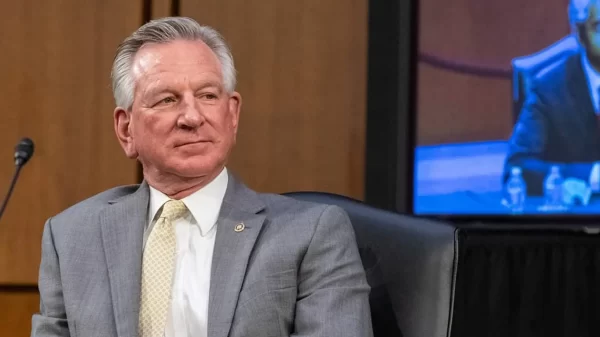By Chip Brownlee
Alabama Political Reporter
MONTGOMERY — A proposed plan by Alabama Education Superintendent Michael Sentance to reorganize the State’s career tech and workforce development program has upset educators, legislators and some State Board of Education members.
Under the proposed changes, the Alabama State Department of Education, headed by Sentance, would move the Career and Technical Education and Workforce Development office under the Academic Affairs office.
“This would allow for better integration of academic and school improvement programs with the CTE efforts,” Sentance said in an email to Board members. “Contrary to some rumors, the office would NOT be abolished.”
At the same time the proposed changes became public, Sentance confirmed that Deputy Superintendent Philip Cleveland submitted his resignation to the Department. Cleveland had been overseeing the CTE and Workforce Development Office as its own entity.His resignation will be effective July 3.
His resignation will be effective July 3.
Cleveland, who served as the interim State superintendent from April until September 2016 as the Board of Education searched for a new superintendent, told AL.com that he submitted his resignation because of differences over leadership and a lack of a clear vision for the career tech division.
The CTE division under Cleveland’s leadership had garnered support from educators and lawmakers. Cleveland oversaw changes to the program that brought welding, architecture and business management programs to more school systems across the State.
“Phillip Cleveland as head of the career tech and workforce development moved Alabama to the forefront in the nation for career tech and workforce development,” said Rep. Tim Wadsworth (R-Arley) in a letter to Board members. Wadsworth said he believed Sentance effectively fired Cleveland.
Wadsworth encouraged the Board of Education to exercise control over the Superintendent and establish the Career Tech and Workforce Development office as a separate agency under the Department of Education.
State Board of Education member Mary Scott Hunter praised Philip Cleveland on her Facebook page for his work and said the Board would ask many questions about the change, but said she doesn’t “expect any lessening of our commitment to the continued success of CTE in Alabama.”
The Board of Education will review this organizational change at a work session on Thursday, March 9. Wadsworth said he was awaiting Board members’ action and told them “its time to stand up.”
“Are State Board members upset with the Career Tech change or are they upset because they are being bombarded by students, educators, politicians and citizens who are upset?” Wadsworth asked. “My guess is that are upset with the calls. They like status quo. They don’t want someone to upset the apple cart.”
In 2013, the Alabama Legislature approved a $50 million bond issue to supply career tech equipment for schools and career tech centers across the State with the 21st Century Workforce Act.
“They have a duty to exercise control, establish education policy and hire a Superintendent of Education and have a duty to fire a Superintendent of Education,” Wadsworth said. “They establish policy.”
Email Chip Brownlee at [email protected] or follow him on Twitter.






















































